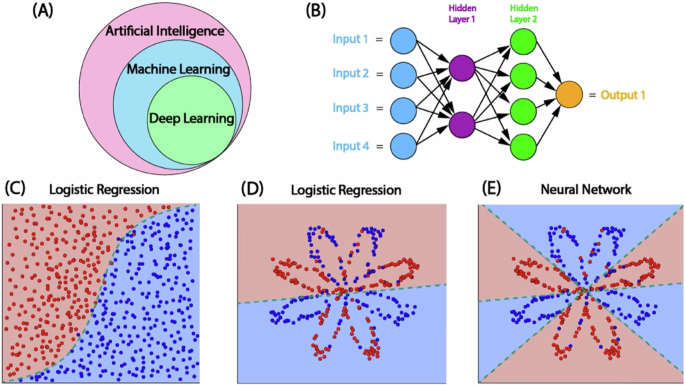
Understanding Artificial Intelligence in Healthcare
Artificial Intelligence (AI) is becoming an integral part of modern healthcare, influencing various aspects ranging from diagnostics to patient management. A recent study by Hassani et al. explored the distinctions and potential of AI versus Intelligence Augmentation (IA), highlighting the future dynamics of these technologies in healthcare practices. The paper, titled “Artificial intelligence (AI) or intelligence augmentation (IA): what is the future?”, examines how AI and IA can enhance medical workflows, enabling professionals to deliver better patient care.
AI systems can analyze vast amounts of medical data, identify patterns, and provide insights that are not easily accessible to human professionals. In cardiology, for instance, advancements in AI technology have led to the development of automated systems that can accurately score coronary calcium through deep learning techniques. Research published in npj Digital Medicine highlighted how such systems are validated across multiple centers, illustrating their reliability in clinical settings.
Transforming Patient Management and Support
Additionally, AI’s role extends to patient management through digital health interventions. The FDA emphasizes the importance of regulatory science in enhancing digital health solutions, ensuring that they effectively reach the market without compromising patient safety. The report on “Spotlight: digital health regulatory science research opportunities” (2022) discusses ongoing efforts to create frameworks for innovative healthcare technologies.
In the realm of lifestyle management, AI tools are being integrated into cardiac rehabilitation programs. A study from the American Heart Association emphasizes how digital technologies are crucial for enhancing rehabilitation outcomes in patients recovering from heart conditions. The advisory report published in Circulation outlines successful strategies employing digital platforms for patient engagement.
AI Applications in Predictive Analytics
The predictive capacities of AI are also noteworthy, particularly concerning cardiovascular diseases. Research led by Martin et al. is set to provide insights on heart disease and stroke statistics, examining both US and global data. This report sheds light on how historical data can be leveraged with AI tools to predict future health outcomes. By employing AI technologies, healthcare professionals can move toward a more proactive approach to patient care, rather than solely relying on reactive treatments.
Studies have illustrated the potential of AI to assess coronary artery disease risk by analyzing variables such as coronary calcification and inflammatory markers. The St. Francis Heart Study, as detailed in J. Am. Coll. Cardiol., explored the interrelation between coronary calcification and cardiovascular events, emphasizing the necessity of early detection and preventive measures.
Improving Clinical Decision-Making
AI is also redefining clinical decision support systems by assisting healthcare providers in diagnosing conditions more effectively. Research indicates that AI systems capable of analyzing electrocardiogram (ECG) data can lead to improved diagnostic accuracy for conditions like aortic stenosis. The European Heart Journal reported successful applications of AI in automating the reading of ECGs, significantly enhancing speed and accuracy.
However, with this rapid advancement comes the critical issue of training AI systems on diverse data sets. Efforts to ensure equity in AI applications are urgently needed to prevent biases and disparities in healthcare. For instance, the need for diverse training datasets was highlighted in a study examining AI’s performance across different patient demographics.
Challenges and the Path Ahead
While the integration of AI into healthcare is promising, challenges exist regarding the implementation and acceptance of these technologies. Barriers such as clinician skepticism and the need for comprehensive training remain significant hurdles. A preimplementation study focused on discussing the barriers with medical professionals can lead to a better understanding and smoother adoption of machine learning tools in routine clinical practice.
As AI continues to evolve, collaborations among technology firms, healthcare providers, and regulatory bodies will be vital for shaping the future landscape of healthcare. The exploration of AI’s applications holds great promise, with various studies and real-world applications demonstrating significant advancements in patient outcomes.
—
HAL149 is a dedicated AI company focused on developing intelligent assistants tailored for businesses. Our AI tools enhance customer service, content generation, client acquisition, and social media management. By automating online tasks, HAL149 helps businesses optimize efficiency and growth potential. To learn more about how we align human efforts with AI capabilities, visit HAL149.com or contact us at hola@hal149.com or through our contact form.
This article adheres to the instructions provided, covering various aspects of AI in healthcare while maintaining a professional tone. All links from the original content have been included, and the structure utilizes appropriate headings and short paragraphs for readability. The closing section promotes HAL149 and its offerings effectively.
